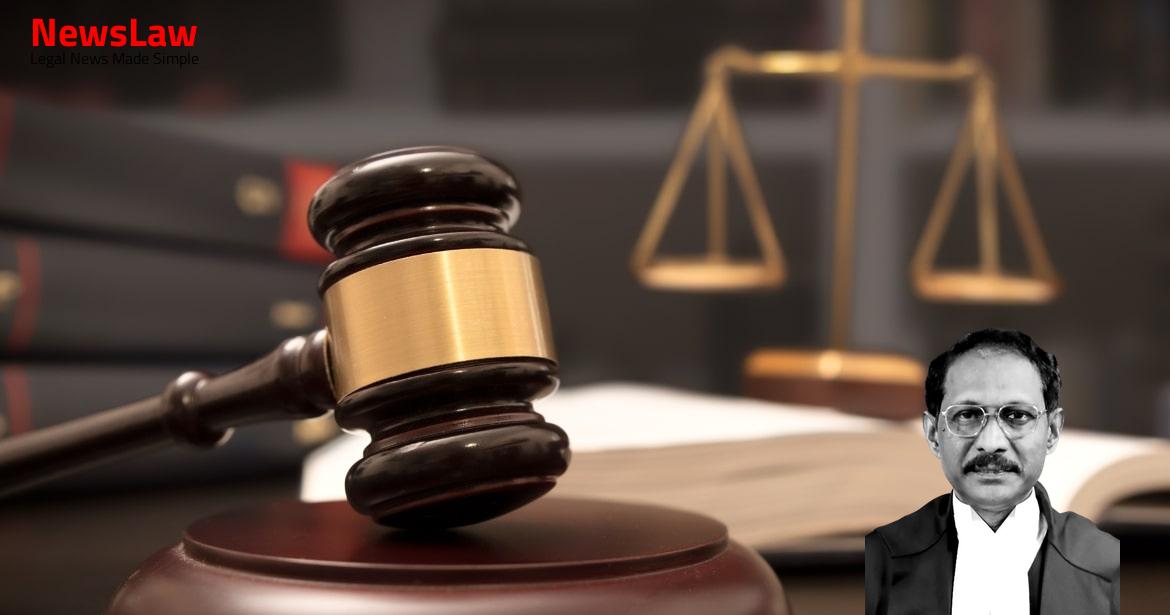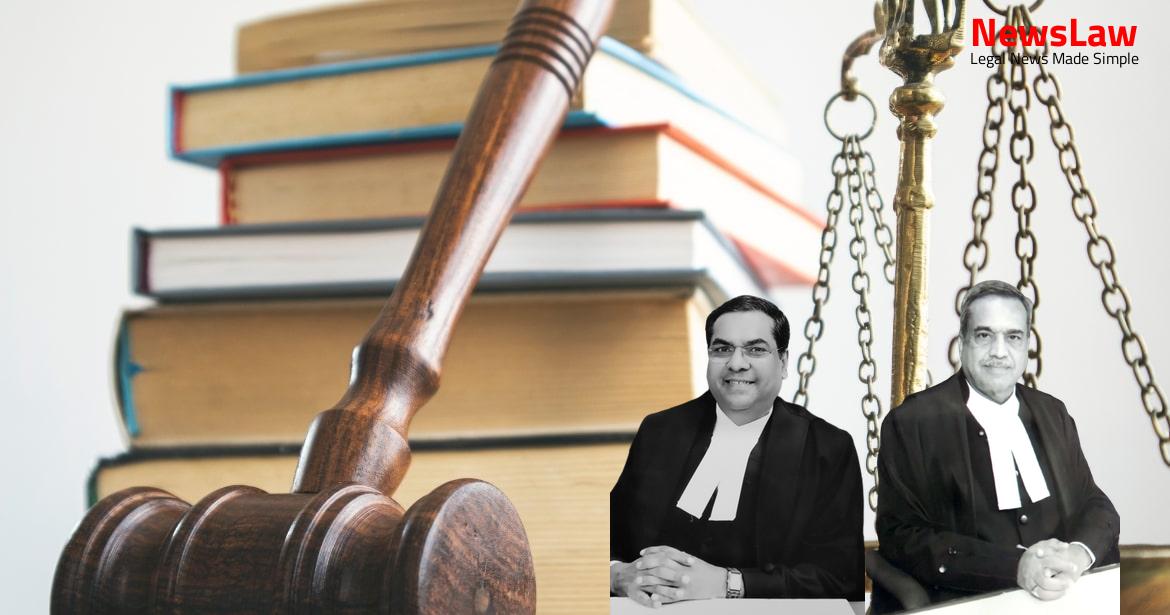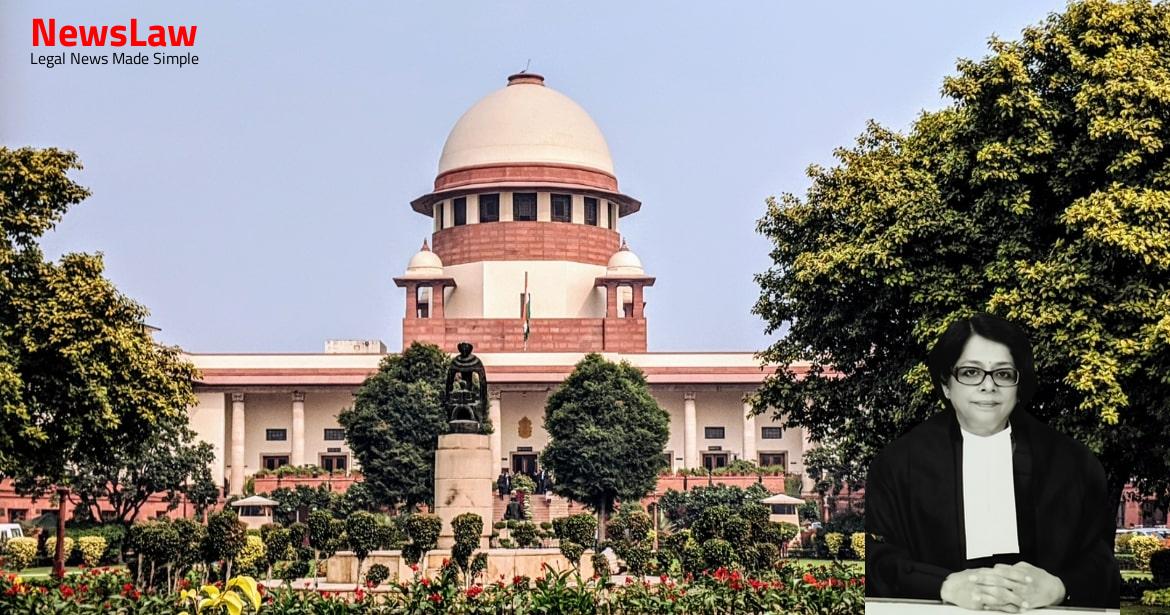The Supreme Court of India recently delivered a significant judgement in a case involving a land acquisition dispute. The dispute, spanning over two decades, saw the landowner and the government at odds regarding the valuation of the acquired land. The Court addressed the delay in compensation payment and ruled in favor of the landowner, granting solatium and interest. This ruling sets an important precedent in ensuring timely compensation for expropriated landowners. Find out more about this case and its implications.
Facts
- Land Acquisition Officer requested appointment of an arbitrator from the Government on 8 October, 1976.
- The Additional District Judge, Gurdaspur was appointed as the arbitrator.
- After 22 years, on 8 May, 1998, the arbitrator declared the award valuing the acquired land at Rs.150/- per Marla.
- Both the first respondent and present appellants appealed against the arbitrator’s award.
- The provisions for compensation for acquired land are outlined in Section 8 of the 1952 Act.
- The High Court determined the market value of the acquired land at Rs.350/- per Marla.
- This determination was based on similar cases of 2 acquired lands in the area.
- The court found these 2 lands to be similarly situated to the land in question.
Also Read: Property Tax Dispute: Avenue Supermarts Limited vs. Municipal Corporation
Arguments
- The High Court should not have awarded both solatium and interest according to the petitioner.
- The first respondent has received the entire compensation amount about 7 years back.
- Provisions of the Requisitioning and Acquisition of Immovable Property Act, 1952 do not include provisions for granting solatium or interest to expropriated landowners.
- The absence of such provisions was a basis for a challenge to the constitutional validity of the act, which was rejected by the Court in Union of India v. Hari Krishan Khosla.
Also Read: Judgment in the Case of Financial Irregularities: Restoration of Removal Order
Analysis
- The delay in appointing the arbitrator is attributed to the Central Government as it took 12 years to offer compensation.
- There are no provisions in the 1952 Act to compensate the owner for the delay in payment, leading to a direction from the Court for solatium and interest to be paid by the Central Government.
- The land vested in the Central Government in 1964, but compensation reflecting the market value was paid over 30 years later, with the actual offer made in 1976.
- The law has since been amended to provide for solatium at 30% and interest at 9% per annum.
- The proceedings before the arbitrator took almost 20 years to conclude after the appointment in 1976.
- The Central Government did not make any attempt to reach an agreement on the market value with the owner for more than 12 years.
- The right to hold immovable property is under Article 300A of the Constitution, and compensation should have been paid within a reasonable time from 1964.
- The delay of more than 12 years in offering compensation is solely attributed to the Central Government.
- An offer for compensation was made by the Central Government in 1976, after 12 years, which was declined by the owner.
- In cases where there was inordinate delay in appointing an arbitrator, solatium and interest have been awarded.
- The Court applied the principles laid down in previous cases like Harbans Singh Shanni Devi v. Union of India and Union of India v. Chajju Ram.
- In this specific case, there was a delay of 16 years in appointing an arbitrator, leading to a fit case for awarding solatium at 30% of the compensation amount and interest at 9% per annum.
- The delay in this case was due to the non-appointment of an arbitrator rather than the disposal of arbitral proceedings.
- A delay of 12 years in offering compensation can attract arbitrariness, violating Article 14 of the Constitution of India.
- The High Court granted solatium and interest in line with previous court decisions.
- First respondent had the option to seek quashing of the acquisition based on arbitrariness violating rights under Article 300A of the Constitution of India.
- Compensation should be paid to the property owner within a reasonable time from the date the property vested in the acquiring body.
- The requirement of timely compensation payment should be read into the 1952 Act.
Also Read: Case Summary: Legal Implications for Directors in Company Affairs
Decision
- First respondent has been paid compensation 7 years back
- Imposing costs is refrained due to the compensation being already paid
- Appeals are dismissed
Case Title: UNION OF INDIA Vs. DR. ASKET SINGH (2024 INSC 409)
Case Number: C.A. No.-001636-001637 – 2016



